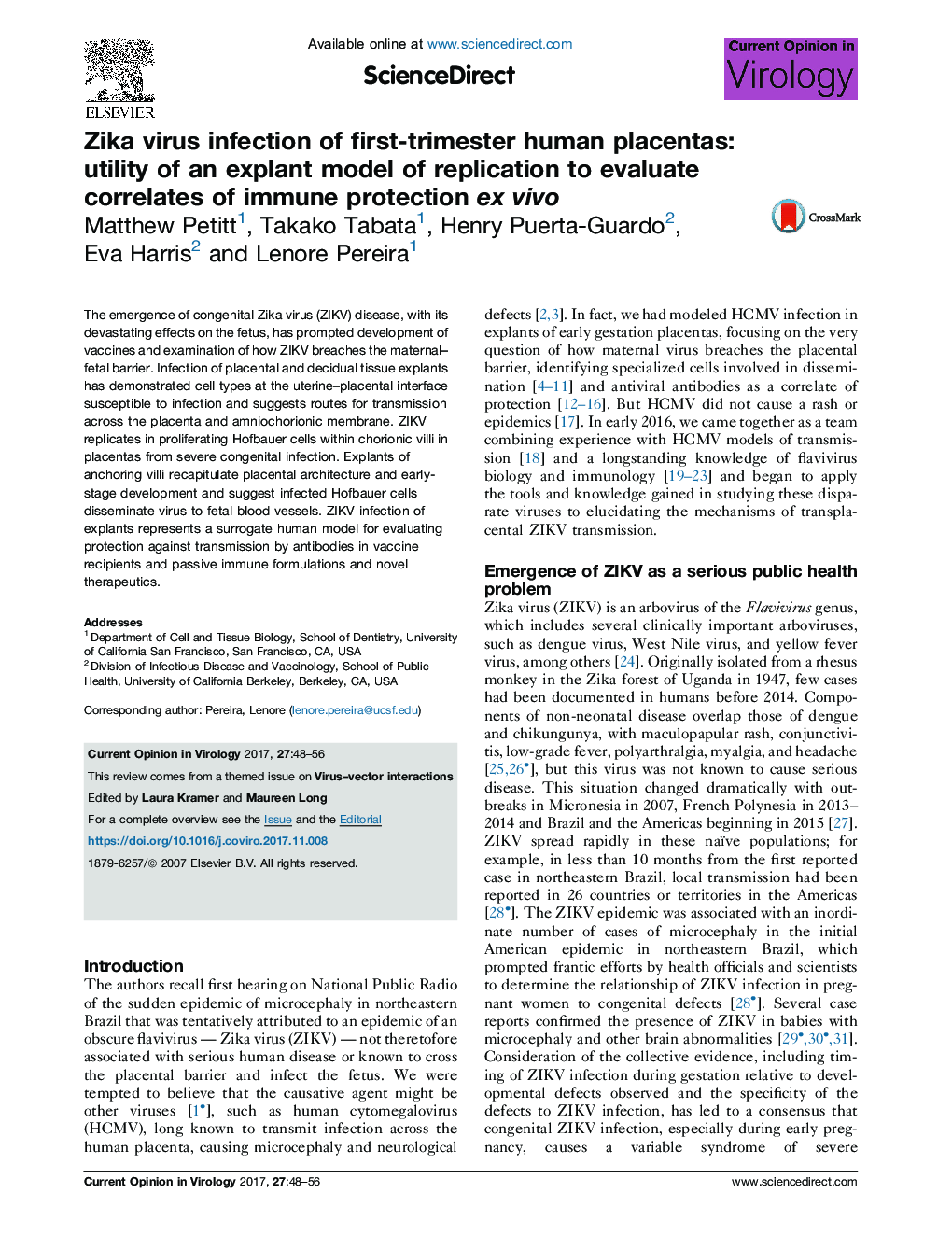| Article ID | Journal | Published Year | Pages | File Type |
|---|---|---|---|---|
| 8506628 | Current Opinion in Virology | 2017 | 9 Pages |
Abstract
The emergence of congenital Zika virus (ZIKV) disease, with its devastating effects on the fetus, has prompted development of vaccines and examination of how ZIKV breaches the maternal-fetal barrier. Infection of placental and decidual tissue explants has demonstrated cell types at the uterine-placental interface susceptible to infection and suggests routes for transmission across the placenta and amniochorionic membrane. ZIKV replicates in proliferating Hofbauer cells within chorionic villi in placentas from severe congenital infection. Explants of anchoring villi recapitulate placental architecture and early-stage development and suggest infected Hofbauer cells disseminate virus to fetal blood vessels. ZIKV infection of explants represents a surrogate human model for evaluating protection against transmission by antibodies in vaccine recipients and passive immune formulations and novel therapeutics.
Related Topics
Life Sciences
Immunology and Microbiology
Virology
Authors
Matthew Petitt, Takako Tabata, Henry Puerta-Guardo, Eva Harris, Lenore Pereira,
